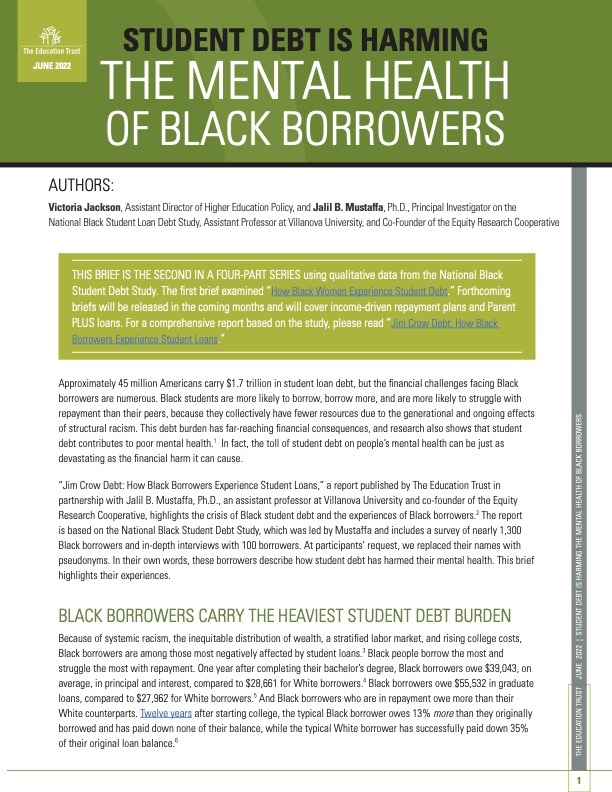 A new report from the Education Trust shows how the burden of student loan debt is impacting the mental health of Black Americans.
A new report from the Education Trust shows how the burden of student loan debt is impacting the mental health of Black Americans.
Approximately 45 million Americans carry $1.7 trillion in student loan debt. Black students are more likely to borrow, borrow more, and are more likely to struggle with repayment than their peers.
One year after completing their bachelor’s degree, Black borrowers owe $39,043, on average, in principal and interest, compared to $28,661 for White borrowers. Black borrowers owe $55,532 in graduate loans, compared to $27,962 for Whites who borrowed for graduate school.
Most strikingly, 12 years after starting college, the typical Black borrower owes 13 percent more than they originally borrowed and has paid down none of their balance, while the typical White borrower has successfully paid down 35 percent of their original loan balance.
According to the National Black Student Debt Study, 64 percent of survey participants reported that student debt negatively impacted their mental health. A March 2021 survey of over 2,300 borrowers with high loan balances noted that 1 in 14 had suicidal thoughts during repayment and that a high debt-to-income ratio was the main factor linked to poor mental health. Participants said the stress in their lives came from having a debt balance that was growing and unpayable and a monthly payment that limits their ability to meet basic needs, even when the payment is based on their income.
The full report, Student Debt Is Harming the Mental Health of Black Student Borrowers, can be downloaded by clicking here.











